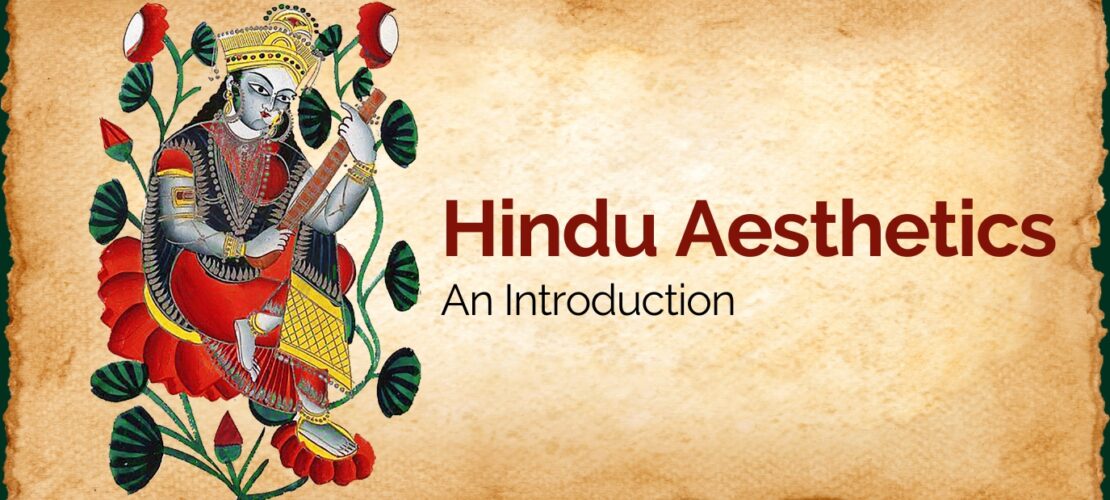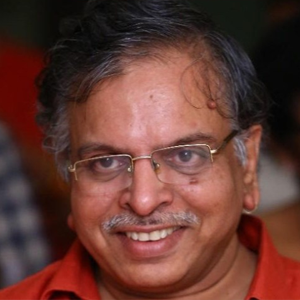
Hindu Aesthetics – An Introduction
This course on Hindu Aesthetics offers a comprehensive exploration of the unique and rich aesthetic sciences developed in the Hindu tradition. Participants will engage with both the theoretical frameworks and practical applications of aesthetics across diverse fields such as poetics, dance, music, architecture, and visual arts. The course will introduce foundational texts, theories, and paradigms that shaped Hindu Aesthetic Sciences and explore their relevance in contemporary contexts.
25 February 2025 - 24 June 2025
7:00 PM-8:00 PM IST
Every Tuesday
Introduction
Hindu Aesthetics is a comprehensive field that reflects the depth and diversity of artistic expression in Indian civilization. Unlike conventional aesthetics, Hindu Aesthetics encompasses a broader worldview where art, science, spirituality, and cultural expression merge into a holistic discipline. This course explores the critical differences between ‘Aesthetics of Hindus’ and ‘Hindu Aesthetics’ while diving into the various schools of thought and artistic sciences that have shaped Indian culture for millennia.
Unique Pedagogy : Two days immersive Experience in a Gurukulam
We have designed this learning experience not only to provide knowledge but also to help you embody it. After completing the online sessions, you will have the opportunity to participate in a unique, immersive experience at our INDICA-RITHAMBHARA Gurukulam in Bengaluru. Over two days (dates to be determined during the online sessions), you will perform a Homam with your fellow participants, engage with faculty members, listen to guest speakers, and fully embody the knowledge acquired. Please note that accommodation will be provided free of charge; however, participants will need to arrange their own travel.
Course Objectives
- To introduce students to the fundamental concepts of Hindu Aesthetics and its various branches
- To provide a detailed survey of the major aesthetic sciences, including dance, poetics, musicology, and architecture
- To critically engage with the comparative frameworks between Hindu aesthetic theories and Western aesthetic concepts
- To explore the contemporary applications of Hindu Aesthetic Sciences in design, media, and cultural studies
Course Outcomes
Upon completing the course, participants will:
- Gain a deep understanding of the various theories and paradigms in Hindu Aesthetic Sciences
- Be able to compare and contrast Hindu Aesthetic frameworks with Western concepts
- Develop an ability to apply these ancient theories in modern creative fields like design, art, architecture, and media
- Cultivate an appreciation for the universal principles embedded in Hindu Aesthetic traditions
Course Syllabus
Module 1: Introduction to Hindu Aesthetics
- Aesthetics of Hindus Versus Hindu Aesthetics
- Significance of Aesthetics in Hindu worldview, culture, and traditions
- Hindu Aesthetics versus Hindu Aesthetic Sciences
- Universality of Hindu Aesthetic Sciences
Module 2: Survey of Hindu Aesthetic Sciences
- Science of Dance, Poetics, Musicology, Dramaturgy, Sciences of Graphic and Plastic Arts, Science of Architecture
- Texts of Theorizing, Compilation, and Art Training and their Commentaries
- Aesthetic Sciences as reflected in Puranas, Kavyas, and other texts
Module 3: Aesthetics of and from Alankara Shastra, Poetics – I
- Kavya Hetus as a General Theory of Creativity
- Kavitaa Saamagri: Tools of Poetic Creation and its Appreciation (Alankaaras, Reeti, Vritti, Paaka)
- Comparison with rhetoric and contemporary application in design
Module 4: Aesthetics of and from Alankara Shastra, Poetics – II
- Chandas: Vaidika and Laukika, Gana and Maatraa Chandas, Marga and Desi Chandas
- Vyakarana and linguistic aspects
- Comparison with Western prosody and grammar (Techne Grammatike)
Module 5: Theories and Paradigms from Natya, Alankara, and Vyakarana Shastras – I
- Rasa Theory
- Dhvani, Vakrokti, Auchitya Theories
- Comparison with Western concepts and contemporary applications
Module 6: Theories and Paradigms from Natya, Alankara, and Vyakarana Shastras – II
- Bhartrihari’s Sphota Theory and Aesthetic applications
- Abhinava Gupta’s Paradigm
- Comparison with contemporary theories and scope for contemporary applications
Module 7: Sangeeta Shastra – Indian Classical Musicology
- Sama Veda, Dhruvapada/Dhrupad, Carnatic and Hindustani Traditions
- Maarga and Desi
- Shruti, Svara, Raaga, Taala etc., Dhatu, Matu Lyrics, Dance Music and Concert Music , Non lyrical music, Mano Dharma
- Comparison with Western concepts and contemporary developments
Module 8: Nritya Shastra
- Indian Classical Dance: Solo and Theatrical (Hastas, Charis, Bhru Bhedas, Greeva Bhedas)
- Rasa and Rasaabhinaya
- Comparison with Western concepts and contemporary developments
Module 9: Chitra Sutra, Sthaapatya, and Vaastu
- Chitra Sutra of Vishnu Dharmottara
- Sthaapatya Shastra, Iconography, Vaastu, and Architecture
- Comparison with Western concepts and contemporary applications
Reading List
- Bharata’s Natya Shastra
- Vishnu Dharmottara Purana
- Kavya Prakasha
- Works of Abhinavagupta
- Bhartrihari’s Vakyapadiya
- Western sources on aesthetics and poetics for comparative study
Course Features
- Live Interactive Sessions: Participate in live lectures and discussions with ample opportunities for Q&A.
- Flexible Learning: Access class recordings and materials at your convenience for asynchronous learning.
- Certificate of Completion: Demonstrate your new knowledge with a certificate upon successfully completing the course.

